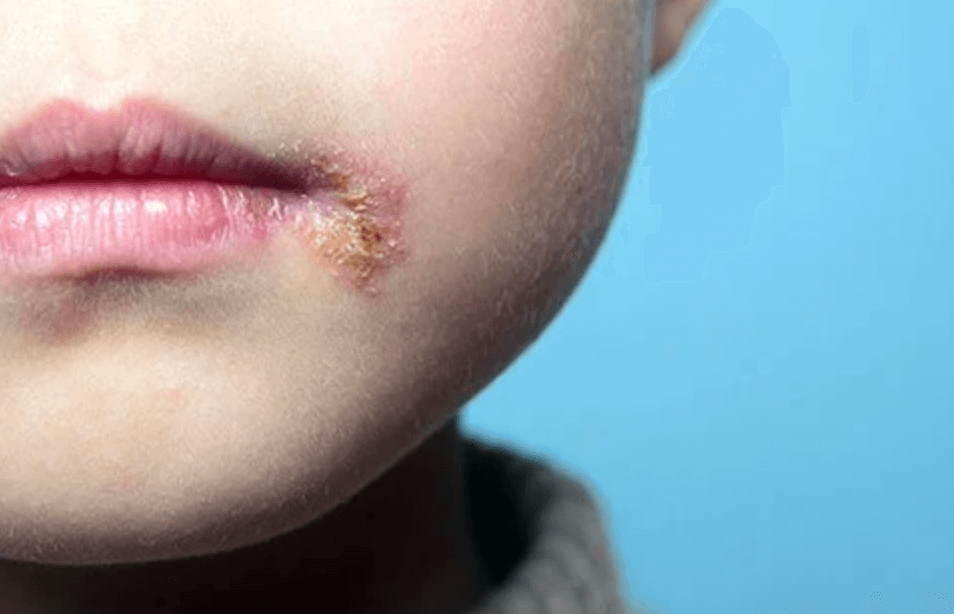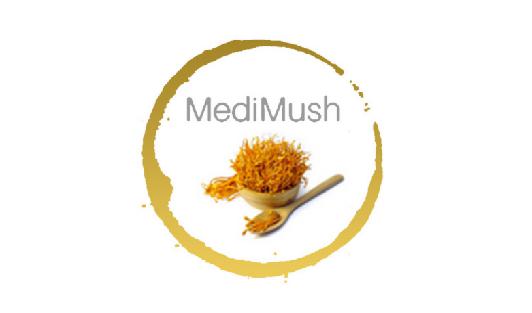Devastating Herpes Symptoms & Treatments Explained
 Devastating Herpes Symptoms & Treatments Explained
Devastating Herpes Symptoms & Treatments Explained
Herpes outbreaks are symptoms of viruses called HSV 1 and HSV 2.
HSV 1 and HSV 2 are nervous system viruses that lie dormant in your spine, entangled in your nerve endings.
When the conditions are right and an acidic environment is created, the viruses will travel to the surface and multiply.
The virus does this by first sitting dormant in the spine, then travelling through your nerves across the body, all the way to the skin, which then causes symptoms to show.
Herpes HSV 1 and HSV 2 affect such a large population; there is nothing to be ashamed of. All age groups, social classes, races and genders are affected by oral and genital herpes.
Taking a proactive approach to your health will help prevent outbreaks and minimise the risk you’ll pose to your potential partner’s family and friends.
- What are the symptoms of herpes?
- What are the types of herpes?
- Herpes is contagious
- What other ‘herpes’ sites don’t tell you
- Have you had a checkup
- How do my hormones affect an outbreak
- Four guaranteed ways to stop herpes outbreaks
- How to stop the herpes virus
What are the Herpes Symptoms?
Herpes symptoms vary depending on the individual and different factors such as general health, stress patterns and food selection (acidic or alkaline).
Herpes symptoms usually occur within two to ten days of exposure to the virus. The symptoms of herpes show themselves first as an itch and, within a few hours, as small red bumps, which may develop into blisters and open lesions.
Other symptoms associated with herpes include fever, headache, muscle aches, swollen glands in the groin area and painful urination or vaginal discharge.
The small red bumps caused by herpes will appear at the site of infection, which can vary from around the vaginal area, cervix and penis, urinary tract of men and women, pelvis, buttocks, thighs, and around the anal opening.
The first outbreak is usually the worst due to the immune system’s lack of antibodies to fight the herpes virus. Containing the fluid inside the herpes blister will help contain the virus. Washing your hands after contact is vital.
What are the types of Herpes Symptoms?
There are two types of herpes viruses, HSV 1 and HSV 2, which cause symptoms.
HSV type 1 is the most common, causing sores on the lips, which most people call cold sores. However, HSV 1 can also cause symptoms of genital herpes infections in some cases.
HSV type 2 is most often related to infections and symptoms of genital herpes. However, this can also infect the mouth and other areas.
Both forms of the virus live in the nerves in your spine, causing periodic symptoms of genital herpes in some people. Many people who are infected with HSV never develop any symptoms of genital herpes at all.
Are Herpes symptoms contagious?
Herpes can be acquired from kissing and sexual contact, as both strains are interchangeable. People with oral herpes can transmit the infection to the genital area of a partner during oral sex, resulting in infection or genital herpes.
A person with HSV 1 or HSV 2 but no notable herpes symptoms can also transmit the virus. In many cases, condoms do not prevent infected areas.
The best way to protect yourself from the herpes virus is to get to know your partner, have an open discussion about STIs, and get tested by your GP or local health clinic.
With so many people infected and never showing any symptoms of herpes, the increase for proper testing is recognised and strongly encouraged, as you may not recognise all the symptoms.
If you do suffer from symptoms of genital herpes, you must always disclose your infection to your intimate partners, regardless of what precautions you believe you’re taking to protect them.
It has to be their choice to continue relations when informed about the possibility of infection.
The most contagious periods are when the virus replicates on the skin’s surface (rash) until the outbreak has healed completely.
Herpes spreads by direct skin-to-skin contact when the virus is active in the contagious stage.
What other ‘herpes’ sites don’t tell you
- Seventy per cent of the population has facial herpes (cold sores), which is just as contagious. Approximately 10 per cent of the UK population has genital herpes. However, these figures are even higher in countries like the USA and the developing third world.
- Up to three-quarters of the population doesn’t know they have herpes, and one in four will show no symptoms. Half will only have mild symptoms and are unlikely to be diagnosed, and one in four will have more noticeable symptoms and will be diagnosed.
- Herpes simplex is seldom of any medical importance – some people are quite ill when they catch it, but so are some who catch the flu.
- Herpes is manageable. Your immune system reacts and cures it very well and stops recurrences for most people.
- By changing your diet to be more alkaline and managing your stress levels, it is possible to stop herpes outbreaks. The other benefit of these processes is better health and vitality.
Please take a look at our products that help keep your body alkaline. You’ll find the Alkalising Products menu on the left page. Also, test your body’s pH balance with our simple home test kit – pH test strips.
Have you had a checkup?
Some of the most common symptoms of genital herpes that are often misdiagnosed are yeast infections, ingrown hair follicles, urinary tract infections, insect bites, abrasions or razor burns, jock itch, and haemorrhoids. If you haven’t been diagnosed with herpes, don’t jump to conclusions – get tested to be sure.
Herpes simplex can appear in different ways. The best way to get diagnosed is at your Sexual Health clinic; in most cases, they will answer within a few days.
Unfortunately, there’s no way of telling if you have herpes unless you have an outbreak.
When an outbreak occurs, antibodies are created by your immune system. Those antibodies are tested to see if your body has fought off the herpes virus. Once these antibodies are formed, they never leave.
How do my hormones affect an outbreak?
Cortisone and adrenaline are stress hormones. Your adrenal glands make cortisone, which is a powerful anti-inflammatory hormone.
This hormone speeds tissue repair in small quantities, but in larger quantities, it depresses your body’s immune defence system.
High amounts of cortisone in your system also reduce the rate at which lymphocytes (body immune cells) multiply, and it accelerates their programmed cell death by suppressing your immune system.
Dr Jesse Stoff also says increased cortisol levels depress immune function: ‘The part of the immune system most sensitive to the effects of cortisol is Natural Killer cells.
A major cause of stress often precedes a serious illness.
Vitamin C, mainly known for its anti-oxidant properties, may also have some anti-cortisol effects.
A study done by Stone entitled ‘Effects of Vitamin C on Cortisol’ showed a decrease in cortisol levels in 17 athletes.
This study also showed that the individuals taking vitamin C (an extra gram a day) improved their cortisol ratio by over 20 per cent.
This type of decrease in cortisol can lead to increased recovery from physical exercise.
Since vitamin C also decreases your chances of suffering from a cold or flu infection by 30 per cent and may aid in collagen synthesis, it would be wise to take some extra vitamin C when involved in any intense exercise.
Green Tea is good for anti-stress and cortisol-controlling effects.
The unique aspect of theanine is that it acts as a non-sedating relaxant to help increase the brain’s production of alpha waves (those associated with ‘relaxed alertness).
This makes theanine extremely effective for combating tension, stress, and anxiety without inducing drowsiness.
By increasing the brain’s output of alpha waves, theanine is thought to control anxiety, increase mental focus, improve concentration, and promote creativity.
Three to four cups of green tea are expected to contain 100 to 200 mg of theanine.
Four guaranteed ways to stop herpes outbreaks
There are four ways you can prevent or stop a herpes outbreak:
Stress Levels
Stress creates acid in your body, and when you get stressed, your muscles tense.
This process creates a by-product from a chemical reaction in your muscle called lactic acid.
If lactic acid builds up in your system, this can induce an outbreak of herpes, as the virus can only survive in an acidic environment. This is why, on occasions of feeling run down or extreme stress, you’re more susceptible to illness and outbreaks of herpes.
Learn to test your acidity daily to prevent outbreaks.
DMSO is a natural substance with oxidising properties.
Dimethyl sulfoxide is derived from wood pulp, a normal decomposition of plant produce. Milk contains small amounts of DMSO.
DMSO has the unique ability to penetrate skin barriers quickly due to its small molecular structure and its amazing characteristic as a solvent.
Unlike any other substance applied properly, DMSO can penetrate the infected cell, increasing the amount of oxygen that kills the herpes virus.
Viruses cannot exist in elevated oxygen or alkaline environments. This is an indisputable fact.
Find out about the application of DMSO Gel here.
Alkalising
If you increase cellular oxygen/alkaline levels equivalent to a pH of 7.5, the herpes virus will die. And if you maintain a cellular pH of 7.5, you will never experience another outbreak again. IT’S NOT BIOLOGICALLY POSSIBLE!
Your diet
If you’re constantly ingesting food and drink that causes acidity in the body, you’ll most definitely be encouraging a herpes outbreak. The herpes virus can only survive in an acidic environment, so by eating and drinking alkaline foods and drinks, you’ll be helping your body maintain the alkaline environment needed to function efficiently. Remember –the body struggles to rejuvenate and grow fresh cells in acidic surroundings.
Please find out more about your diet and how it affects your body.
How to stop the herpes virus
Herpes can be easily stopped in the beginning stages by using DMSO properly.
No viruses can exist in an elevated oxygen/alkaline environment. If you increase cellular oxygen/alkaline levels to a pH of 7.5, the herpes virus will die. If you maintain a pH above 7.5, you will never experience another outbreak again.
The disease cannot exist in an oxygen environment. This is a medical fact!
Cancer, influenza, HIV, herpes, measles, the common cold, Legionnaire’s disease, E. coli, salmonella, staphylococcus, arthritis, emphysema, asthma, chronic bronchitis, chronic fatigue syndrome Epstein-Barr, candida, and even heart disease, are all anaerobic, and once they come in contact with the oxygen they oxidise – in other words, die.
Many doctors now believe that a completely oxygenated body cannot harbour disease.
